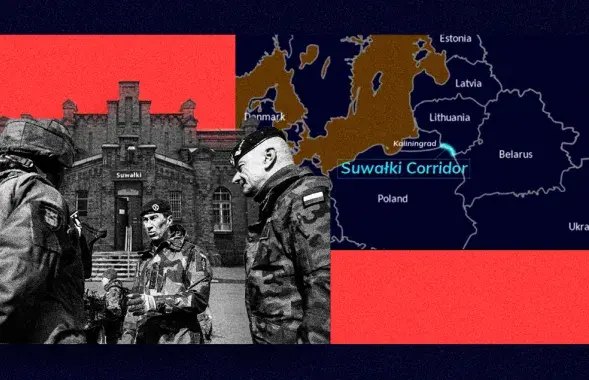Entrepreneurs in Belarus remain defiant despite all odds
All people in Belarus are entrepreneurs, because you have to be entrepreneurial in order to survive in this country, says Viktar Harbachou, the leader of Movement for Free Entrepreneurship, in an interview with the European Radio for Belarus. How can you describe a Belarusian entrepreneur? There is a certain stereotype that an average Belarusian is rather passive than active. Does it mean that entrepreneurs in Belarus are somewhat special people? Perhaps, they are not Belarusians at all?
Harbachou: Before answering this question, I will say that there are 220,000 officially registered entrepreneurs in Belarus. Correspondingly, this will amount to nearly one million people together with family members that earn their bread using their head, hands and legs. At the same time, they feel a certain pressure from the government.
When talking about the general passive nature of the population and why entrepreneurs are more active in their lives and in defending their rights than workers, I think it is because they feel the taste of freedom. They also know what it means to earn money and to provide for their families without assistance from the state… Naturally, they do not wish to give away what they have earned just like that.
Entrepreneurs are politically active. They take part in electoral campaigns…
What is the image of Belarusian entrepreneurs among the other layers of this country's population?
For the past 15 years till the introduction of a moratorium on inspections in 2008, the authorities treated entrepreneurs in a very negative way… They had cultivated an image of idlers who do not wish to work but long for huge money… Apparently, this image has stuck with us through now.
By passing several decrees and resolutions, the government has tried to cleanse this image. The recent decree No 150 on 'control activities' proves that the authorities is trying to loosen the nuts in order to show off to Europe that Belarus is liberal and helps entrepreneurs. But most of entrepreneurs do not believe this would bring about changes in the perception of small-size entrepreneurs by the majority of the population.
What else do you fear?
The number one fear for entrepreneurs is that their business will be closed down and they will not be able to provide for their families. This fear has always been there. It will take a lot of time to knock this fear out of us.
Entrepreneurs fear in the same way as workers. While workers are tied by labor contracts, entrepreneurs are tied by licenses or entrepreneurship certificates which can be abolished after two or three violations of you name what.
What is the major problem our sole entrepreneurs are faced with? Laws? Bureaucracy? Anything else?
The most general problem is huge fines that are imposed for literally minor violations, e.g. a missing sanitary certificate for one tin of instant coffee. People are penalized with 60, 70 or even 100 thousand US dollars for the absence of a certificate.
22 percent of inmates in Belarus prisons are serving their term for economic crimes. A huge bulk of them is entrepreneurs who used to say as follows: "I am not messing up with politics; I have my own business, so buzz off"...
Does it mean that politics not economy lie behind the problems of Belarusian entrepreneurs?
Definitely. That's why we should have entrepreneurs at all levels of power: local councils or the parliament. Our people need to take part in electoral campaigns in order to have one or two representatives in small settlements, towns who are aware of the problems of entrepreneurs and can raise their issues with elected representatives and to defend their fellow entrepreneurs.
We will take part in the next election so that we can have an opportunity of defending our rights by writing better laws.
Talking about laws, which decrees, laws or resolutions exactly are the biggest hurdle for entrepreneurship?
Decree No 760 remains a problem, because it bans us from hiring employees. It has been a painful blow on entrepreneurship. But the biggest hurdle is that there is now law on small and medium-size entrepreneurship. We continue living in accordance with thousands of decrees, edicts or resolutions annually. Entrepreneurs are physically unable to keep pace with all this paperwork. Meanwhile, the government takes use of this situation.
There is no law which could enable me to plan my business development for the future. I can't plan that I will have 6 employees in two years or 20 employees in 10 years... Generally, such a confused legal framework is a hurdle for the development of entrepreneurship in Belarus.
Another problem is that all rent and tax payments are tied to euro which is fluctuating. When I come to visit my colleagues in Poland, I ask: "How do you pay?" -- "I pay in Zloty (Polish currency), I have a tax..." -- "What is it tied to?"-- "What?!" He does not even understand what I am asking!
That's why entrepreneurs partially move their business abroad to Poland, Lithuania, Ukraine and Russia… A friend of mine moved to Ulyanovsk (Russia) where he opened a restaurant, employing 18 people. He has enough for everything. Another entrepreneur from Barysau moved to Ukraine where he registered two small mini-factories.
What kind of small business is the most attractive in Belarus now?
In the first place, it is the business associated with the sales or production of foodstuffs, because they will always be in demand. This is the most profit-making sector for small-size entrepreneurs.
What about restaurants?
Two colleagues from Ukraine recently came to visit me. They are in the restaurant business. They had free money they wanted to invest in Belarus. They spent four or five days, shook my hand and said: "Thanks for hospitality and for showing around Belarus, but we will invest our money somewhere else -- in Georgia or Abkhazia where we can open a restaurant within one or two days and will be confident that our business will develop".
There is no confidence in the success of a small-size restaurant business in Belarus, because it can be closed down at any moment due to the unstable legal framework (to be continued).
Harbachou: Before answering this question, I will say that there are 220,000 officially registered entrepreneurs in Belarus. Correspondingly, this will amount to nearly one million people together with family members that earn their bread using their head, hands and legs. At the same time, they feel a certain pressure from the government.
When talking about the general passive nature of the population and why entrepreneurs are more active in their lives and in defending their rights than workers, I think it is because they feel the taste of freedom. They also know what it means to earn money and to provide for their families without assistance from the state… Naturally, they do not wish to give away what they have earned just like that.
Entrepreneurs are politically active. They take part in electoral campaigns…
What is the image of Belarusian entrepreneurs among the other layers of this country's population?
For the past 15 years till the introduction of a moratorium on inspections in 2008, the authorities treated entrepreneurs in a very negative way… They had cultivated an image of idlers who do not wish to work but long for huge money… Apparently, this image has stuck with us through now.
By passing several decrees and resolutions, the government has tried to cleanse this image. The recent decree No 150 on 'control activities' proves that the authorities is trying to loosen the nuts in order to show off to Europe that Belarus is liberal and helps entrepreneurs. But most of entrepreneurs do not believe this would bring about changes in the perception of small-size entrepreneurs by the majority of the population.
What else do you fear?
The number one fear for entrepreneurs is that their business will be closed down and they will not be able to provide for their families. This fear has always been there. It will take a lot of time to knock this fear out of us.
Entrepreneurs fear in the same way as workers. While workers are tied by labor contracts, entrepreneurs are tied by licenses or entrepreneurship certificates which can be abolished after two or three violations of you name what.
What is the major problem our sole entrepreneurs are faced with? Laws? Bureaucracy? Anything else?
The most general problem is huge fines that are imposed for literally minor violations, e.g. a missing sanitary certificate for one tin of instant coffee. People are penalized with 60, 70 or even 100 thousand US dollars for the absence of a certificate.
22 percent of inmates in Belarus prisons are serving their term for economic crimes. A huge bulk of them is entrepreneurs who used to say as follows: "I am not messing up with politics; I have my own business, so buzz off"...
Does it mean that politics not economy lie behind the problems of Belarusian entrepreneurs?
Definitely. That's why we should have entrepreneurs at all levels of power: local councils or the parliament. Our people need to take part in electoral campaigns in order to have one or two representatives in small settlements, towns who are aware of the problems of entrepreneurs and can raise their issues with elected representatives and to defend their fellow entrepreneurs.
We will take part in the next election so that we can have an opportunity of defending our rights by writing better laws.
Talking about laws, which decrees, laws or resolutions exactly are the biggest hurdle for entrepreneurship?
Decree No 760 remains a problem, because it bans us from hiring employees. It has been a painful blow on entrepreneurship. But the biggest hurdle is that there is now law on small and medium-size entrepreneurship. We continue living in accordance with thousands of decrees, edicts or resolutions annually. Entrepreneurs are physically unable to keep pace with all this paperwork. Meanwhile, the government takes use of this situation.
There is no law which could enable me to plan my business development for the future. I can't plan that I will have 6 employees in two years or 20 employees in 10 years... Generally, such a confused legal framework is a hurdle for the development of entrepreneurship in Belarus.
Another problem is that all rent and tax payments are tied to euro which is fluctuating. When I come to visit my colleagues in Poland, I ask: "How do you pay?" -- "I pay in Zloty (Polish currency), I have a tax..." -- "What is it tied to?"-- "What?!" He does not even understand what I am asking!
That's why entrepreneurs partially move their business abroad to Poland, Lithuania, Ukraine and Russia… A friend of mine moved to Ulyanovsk (Russia) where he opened a restaurant, employing 18 people. He has enough for everything. Another entrepreneur from Barysau moved to Ukraine where he registered two small mini-factories.
What kind of small business is the most attractive in Belarus now?
In the first place, it is the business associated with the sales or production of foodstuffs, because they will always be in demand. This is the most profit-making sector for small-size entrepreneurs.
What about restaurants?
Two colleagues from Ukraine recently came to visit me. They are in the restaurant business. They had free money they wanted to invest in Belarus. They spent four or five days, shook my hand and said: "Thanks for hospitality and for showing around Belarus, but we will invest our money somewhere else -- in Georgia or Abkhazia where we can open a restaurant within one or two days and will be confident that our business will develop".
There is no confidence in the success of a small-size restaurant business in Belarus, because it can be closed down at any moment due to the unstable legal framework (to be continued).



















